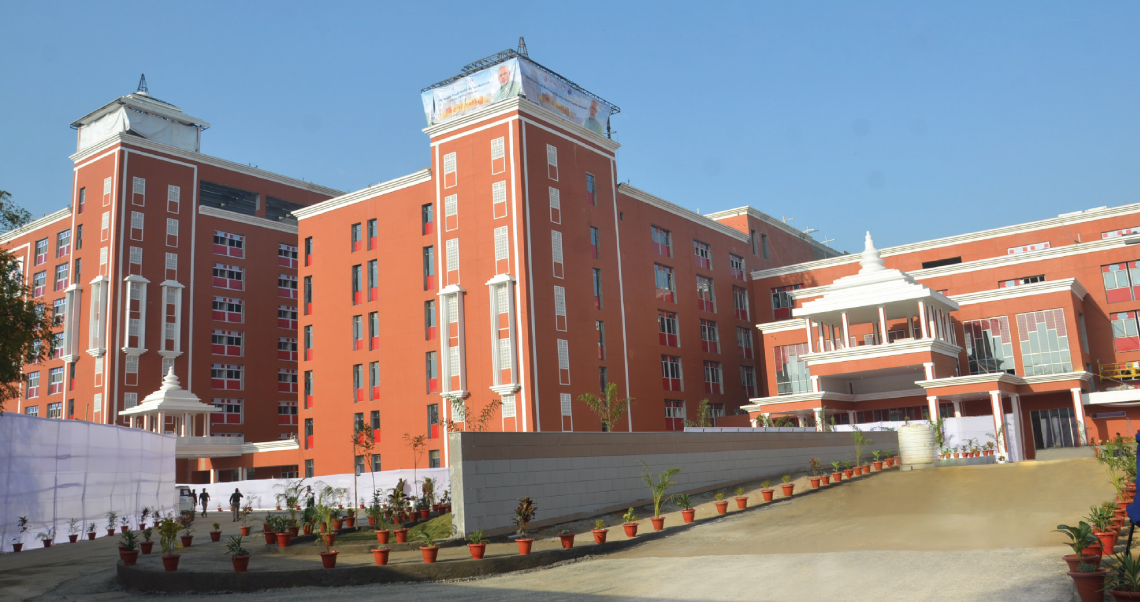Alliances aplenty
Partnerships across the spectrum have been a critical component of the Tata Trusts’ endeavours in cancer care
When Majid Gohain, a resident of rural Assam, was diagnosed with cancer in 2019, he struggled to get cancer care. The closest comprehensive cancer care hospital was in faraway Guwahati. It’s better these days for Mr Gohain, who continues to battle the disease. He can visit the Dibrugarh Cancer Centre, 60 kilometres from his village, a facility born of a collaboration between the Tata Trusts and Siemens Healthineers, a global medical technology company.
Similar corporate partners include Pfizer and Federal Bank and the reason is simple. Partnerships with the private and the public sector have enabled the cancer care programme of the Tata Trusts to scale up and create a sustainable impact.
In Assam, for instance, the Trusts have joined hands with the state government to set up a network of 10 facilities under the umbrella of the Assam Cancer Care Foundation. In Maharashtra, the Trusts and the state government have come together to form the Chandrapur Cancer Care Foundation, which will presently be setting up a new facility to serve the region’s tribal belt.
The corporate partnerships of the Trusts are aimed at pooling together collective resources to lift cancer care in India, particularly in underserved regions. Siemens Healthineers, for example, works to provide essential medical equipment and technology in Assam, while the Trusts focus on infrastructure development and programme implementation.
The Trusts’ collaboration with pharmaceutical major Pfizer concentrates on community screening for oral, breast and cervical cancers, training frontline health workers, and raising awareness about risk factors. The partnership has reached more than 550,000 beneficiaries in three years. Another notable corporate engagement is with Federal Bank (see A safety net to cut costs and suffering).
The legacy endures
In the public sector, the Trusts have long been a solid backer of the Tata Memorial Hospital (TMH), India’s foremost cancer care and research establishment. This is a legacy that stretches back to 1941, when TMH was established by the Sir Dorabji Tata Trust (the hospital’s management shifted to the Department of Atomic Energy in 1962).
Another critical partnership is with the Indian government’s National Cancer Grid (NCG), a network of some 360 cancer centres, research institutes, patient groups and professional organisations in India and abroad. NCG’s mandate is to establish uniform standards for cancer patient care, provide specialised oncology training, and foster collaborative cancer research.
Established in 2012, NCG has found a steady supporter in the Trusts. Among the largest cancer networks in the world, it covers nearly 60% of all cancer-diagnosed patients in India. The Trusts are part of select initiatives of the Grid, and the impact of the collaboration continues in various aspects. “The Trusts have been actively involved with NCG, especially in its initial years. It is a natural partnership,” says TMH’s Director, Dr CS Pramesh.
NCG is unique in many ways. One of the more striking outcomes emerging from it is the cost of cancer drugs. NCG’s heft and numbers enable it to pool resources and minimise the price of procuring high-value and high-volume oncology and supportive-care drugs.
The bulk buying yields an average of 85% in discount on the cost of medicines, which is passed on to member hospitals, eventually leading to patients getting access to affordable treatment and care.
Along with TMH, the Trusts have worked to set up or upgrade cancer facilities. One such example is the Mahamana Pandit Madan Mohan Malaviya Cancer Centre in Varanasi, which was built entirely by the Trusts and then handed over to TMH. “Where routine government processes can be time-consuming, the Trusts bring speed in execution with their expertise and resources,” says Dr Pramesh.
Another sphere the Trusts have paid attention to is the funding of patient care. Specialised training in oncology is yet another contribution by the Trusts to enhance India’s cancer care ecosystem. The Trusts also support cancer research, as with the breakthrough CAR T-cell therapy, which typically costs $500,000 in the West.
“We were able to develop the same at one-tenth the cost, and the initial phase of the research was funded by the Trusts,” says Dr Pramesh. “If it weren’t for their support, we would not have it in India.”
By joining hands with stakeholders across the cancer care spectrum, the Tata Trusts have played a substantial role in providing affordable and accessible cancer care to the poorest of the poor in India.
